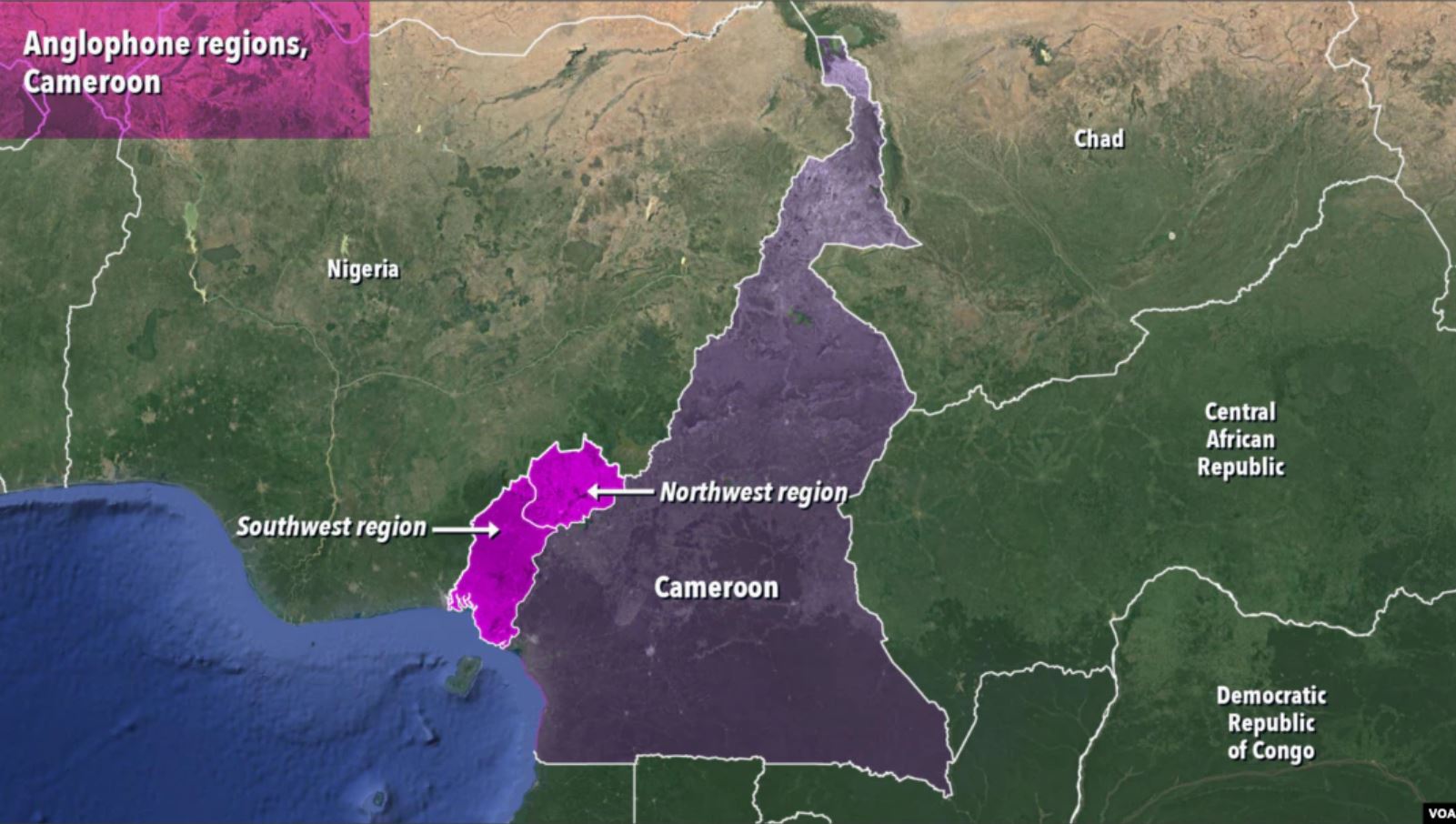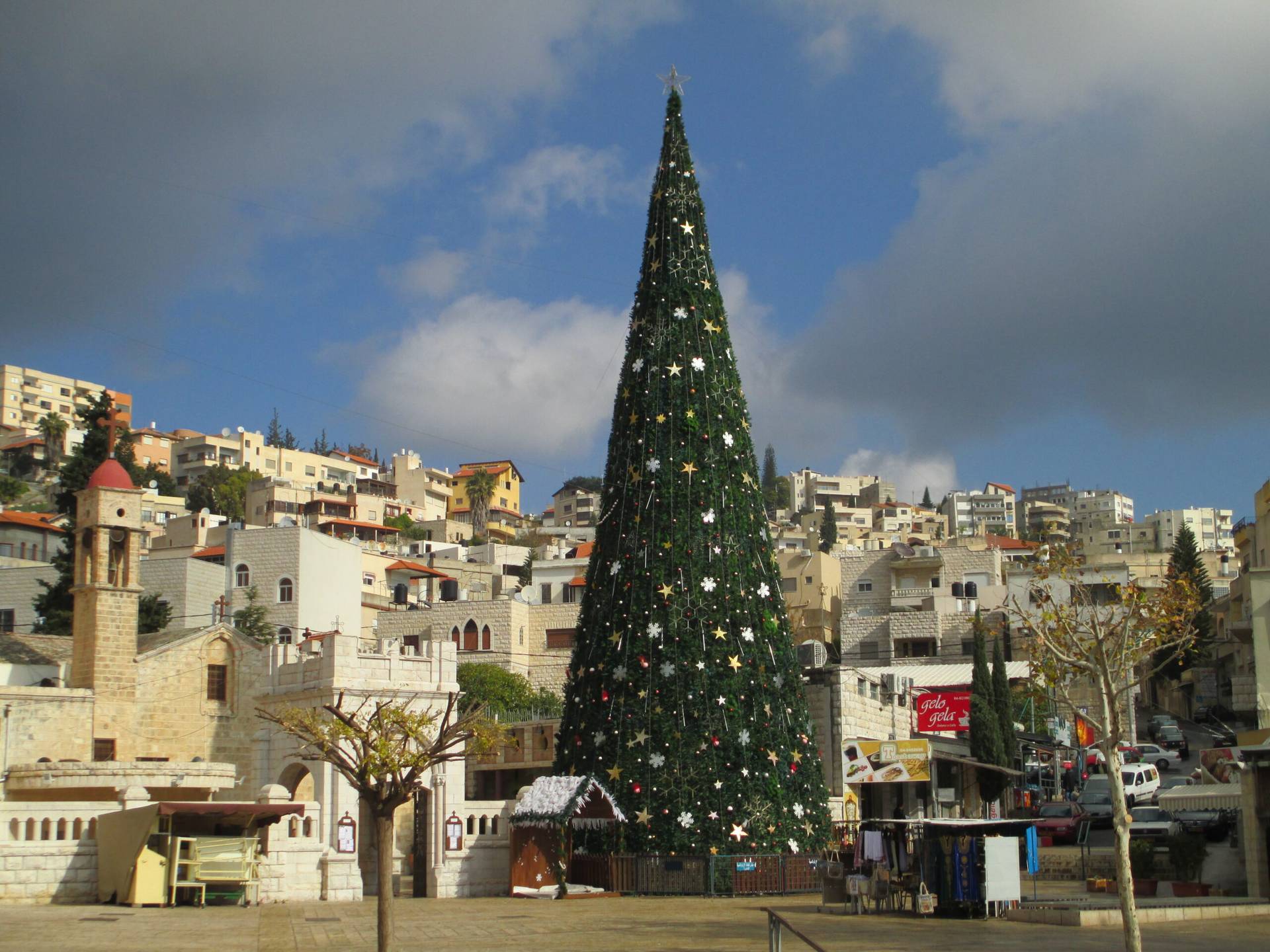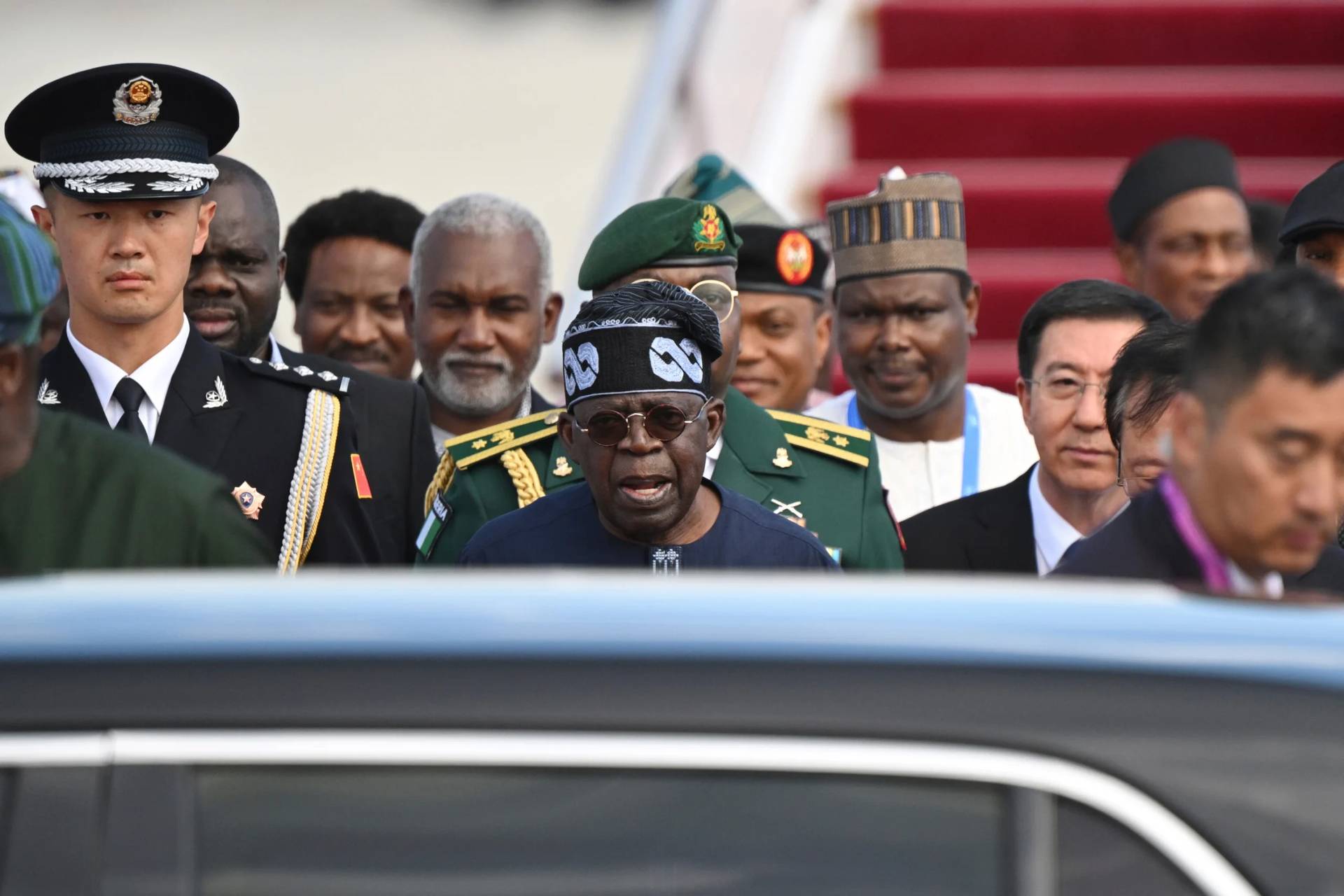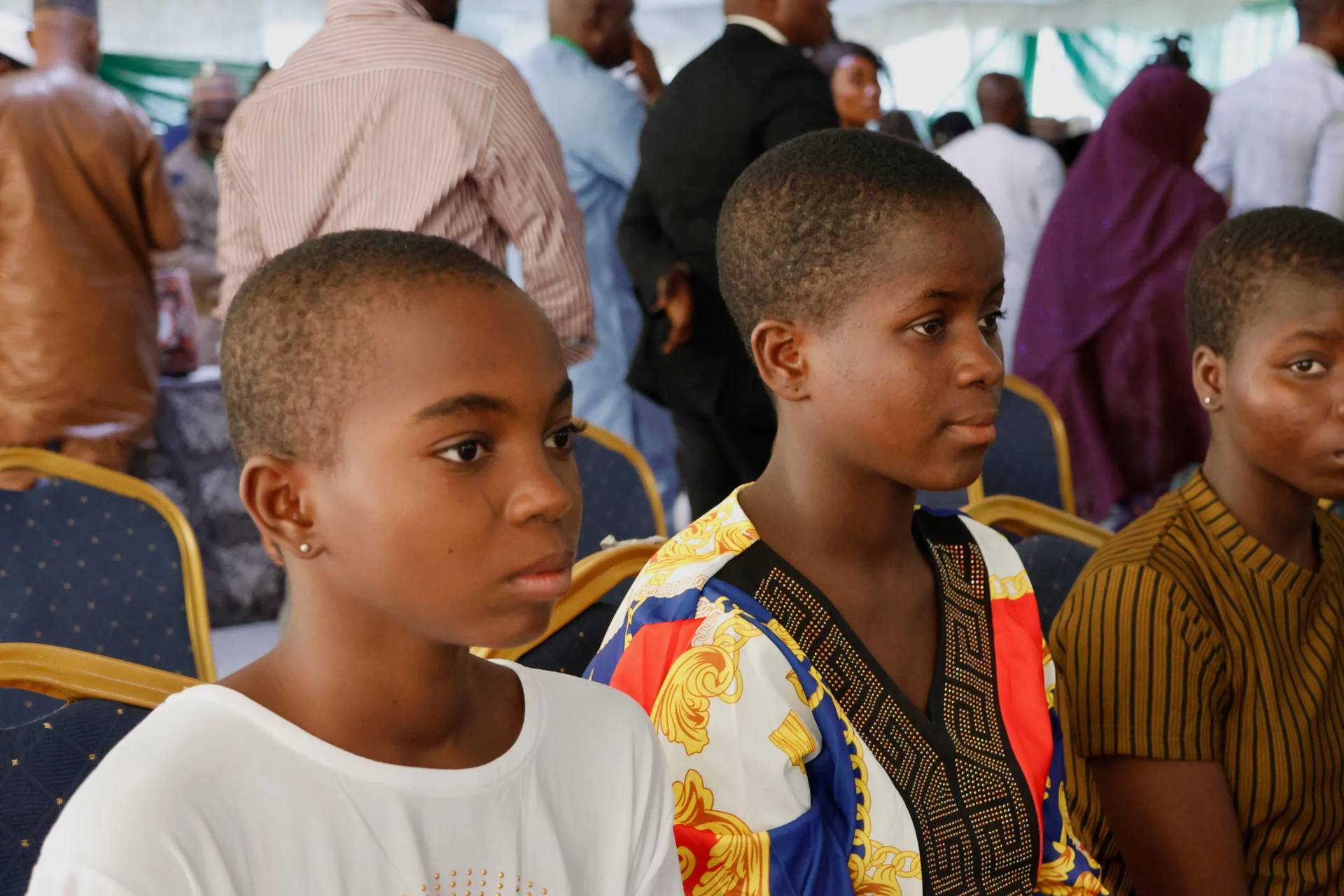YAOUNDÈ, Cameroon – Cameroon’s Catholic Church will never be bullied by its persecutors, according to the spokesperson of the country’s bishops’ conference.
Father Humphey Tatah Mbuy was reacting to a video that surfaced online on Oct. 19 showing five priests, a nun and three others who were kidnapped recently at the St. Mary Catholic Church in Nchang village. The frail-looking hostages were huddled together in a forest, begging for their freedom.
The village is in Mamfe Diocese in Cameroon’s South West region.
In the video, one of the hostages, Father Cornelius Jingwa, calls on Bishop Aloysius Fondong Abangalo to do “everything possible” to secure the release of the hostages.
“So far it has not been easy,” Jingwa says.
“If you look at us, you will see our faces are very dismal, very unhappy,” he continues. “It is quite difficult, and we are only begging My Lord that you do everything possible to get us out of here.”
“It is a matter of do or die,” the priest says. “You see for example, I have been very sick, my brothers too are not feeling fine at all.”
“Please kindly, My Lord, help get us out of here. Do whatever it takes to listen to this voice and do what they ask of you. Thank you.”
Mbuy told Crux he felt bad the hostages were be treated badly, but insisted that persecution wouldn’t deter the Church from always seeking its prophetic mission.
“The Church takes an uncompromising stand against falsehood and evil,” the spokesperson said.

“She stands with the oppressed and the downtrodden. And so at one moment she is bound to hurt the feelings of one side or the other. But persecution will not frighten the Church from playing her prophetic role in favor of justice, peace and truth,” he said.
The kidnapping is the latest crime stemming from Cameroon’s Anglophone crisis.
Cameroon is 80 percent French-speaking and 20 percent English-speaking, a result of the country being divided by France and Britain during the colonial era. The two English-speaking North West and South West regions continued to use the British education and common legal systems, but faced marginalization by the Francophone majority for decades.
In 2016, a series of protests by English-speaking teachers and lawyers were violently suppressed by the central government, leading to the present separatist insurgency. So far, over 4,000 people have been killed, and over 700,000 people displaced.
Both sides are accused of human rights abuses. There have been reports of government soldiers arresting people and only releasing them upon the payment of a bribe. Meanwhile, kidnapping for ransom has become an important way to raise funds for the separatist forces.
The conflict has been particularly hard on the Church. Mbuy said two priests have been killed, Church ministers – including bishops, priests and nuns – have been kidnapped, Catholic schools and hospitals have been attacked, and students and teachers abducted.
The priest said despite these crimes, he would like to “pray for the conversion of the kidnappers.”
“It doesn’t score any point kidnapping priests, religious men and women,” he said, adding that the continued attacks on the Church were evidence that “something very pernicious seems to have gone wrong.”
“If my great, grandparents awoke from their ancestral shrine in Tambi and were told that a Church was burnt and some priests kidnapped now for nearly a month, I suppose they would probably die a second death out of shock. Why? Such an abomination would probably have been unimaginable at their time because it was tantamount to the clear presence of some demonic force at work,” Mbuy said.
“Yet, my great grandparents were not Christians. They were adherents of African traditional religions which have a very profound awe for God and the servants of God. But not our generation … We are living in very trying moments and the kind of mayhem that we are now witnessing should make each and every one of us stop, think and ask very fundamental questions,” the priest continued.
“Even a mad person knows that there are things you do and things you do not do when you approach a village shrine. The attack on religious men and women in Cameroon is not to be seen as a bad taste of our pudding. It is in fact a sign that our society has so degenerated morally that we hardly have anything as an identity anymore. And if we continue along this path, literary scholars would already see a recipe for a classic Shakespearean tragedy,” he said.
However, he told Crux persecution always leaves the Church “stronger, never weaker.”
“The Church is the mystical body of Christ, and no one can ever destroy it: Not even the Devil.”

















